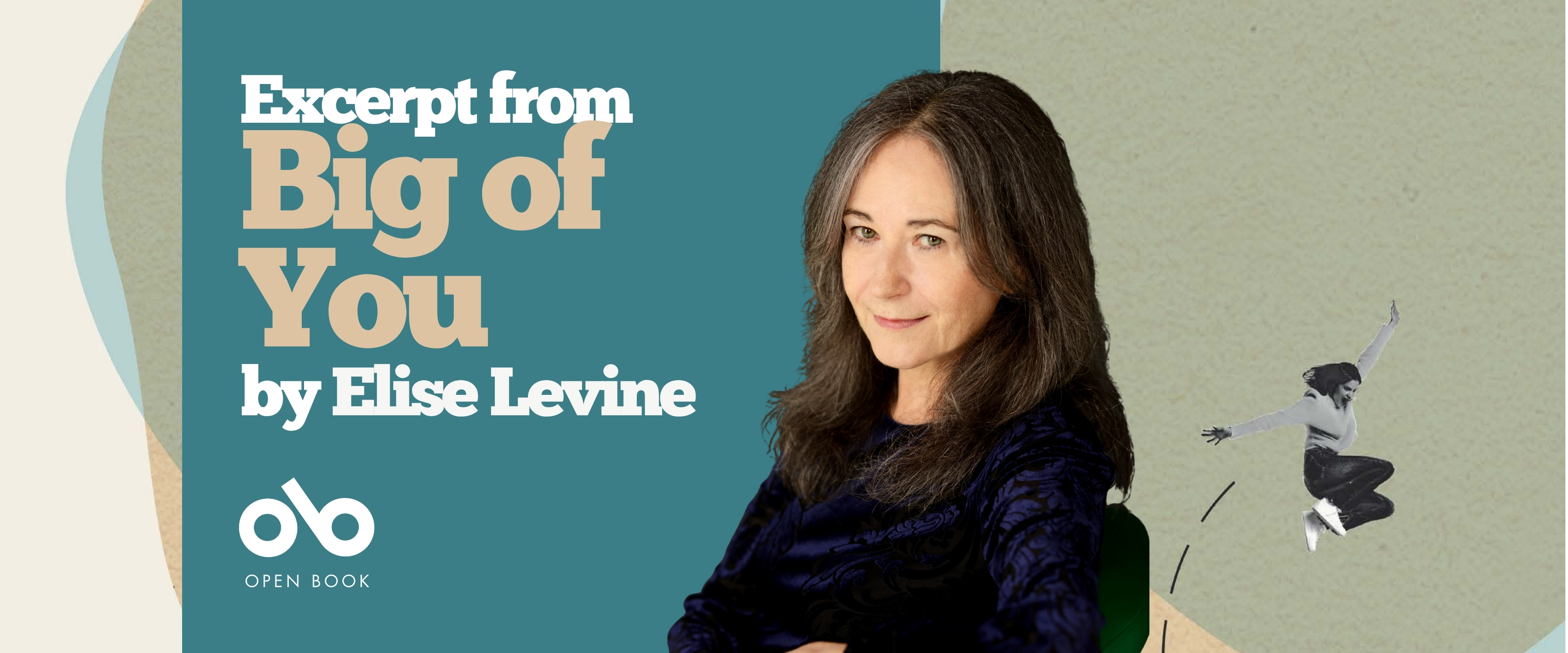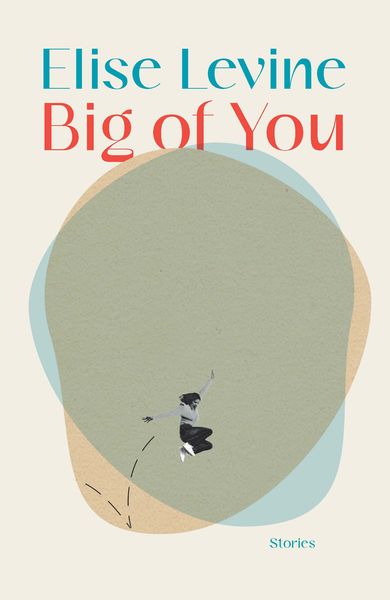Read an Excerpt from the New Short Story Collection by Celebrated Author Elise Levine
The latest collection of short fiction by Elise Levine is a masterclass from an author that has few equals in the form. Across nine unforgettable stories in Big of You (Biblioasis), Levine captures the beauty and hardship in her characters' lives. Expertly depicting women, men, and even a wry, ancient being, as they confront the weight of memory, friendship, and love while trying to discover their new selves.
From hitchhiking adventures across Europe to the vast isolation of space and the experimental skies of 19th-century Paris, Levine’s worlds hum with energy and tension. Each story carries a fresh voice and fearlessly explores what it means to move forward while being haunted by the past.
Full of disarming tenderness, Big of You showcases Levine’s signature brilliance through language and craft. These stories are intimate and expansive, revealing the fragile, funny, and ferocious ways people search for meaning in the wreckage and wonder of their lives.
We're so pleased to share an excerpt from these collected stories, free for our readers, and right here on Open Book!
Excerpt from Big of You by Elise Levine
(From the story, Dig!)
From A
It’s the next morning. I summon my strength and call my father’s wife.
“It’s your daughter,” she tells him, on speaker beside the bed at the nursing home. “Your daughter! Say hi!”
Each time she says daughter I lose a piece of my own mind.
He splices together some unintelligible sounds, their own language, one I don’t know.
“Dad has a new vocabulary now,” his wife says.
Your CanLit News
Subscribe to Open Book’s newsletter to get local book events, literary content, writing tips, and more in your inbox
I swallow a laugh. It’s been a year—his previous birthday—since I last spoke to him, spoke at him. My guilt has gulped chunks of me and left a gummy residue like tar, but suddenly I feel light, unburdened. The moment I’ve been waiting for: having head-on entered late-stage dementia, he really can’t remember me. Cue the credits.
He gives a good long gargle to clear his throat.
“My first born,” he growls, some loose line in his brain zipping tight, releasing a trapdoor-heat that yawns in my gut, base-of-my-spine kind of thing.
A shocker—this space I’d never noticed inside me, until now.
How could I? I think, suddenly appalled. Under what terms accept the gift of this anointing. An enlargement, a primal knowledge of how special I am. Might be. Once was.
Knowing I’ll never see him again, I can’t, no way.
°
After the call I catch a crowded vaporetto and cling to a pole, legs braced as the boat seems to churn up and down rather than forward and across.
My first time in Venice. One of my books has been translated by a local university class and published by a local press. As part of a conference, the university has been hosting me for a class visit and launch. Yesterday morning, I tried for sophistication in a fitted black dress and, clutching a glossy scarlet file folder containing bits of paper on which I’d scrawled an overcaffeinated thing or two to say, burbled some jet-lagged and possibly encouraging words at the students. I then stumbled through a lavish lunch, a mini-tour of the city, and awkward aperitivos in company with faculty and conference luminaries, dashing hopes I could impart anything remotely resembling smart bookish gossip, before I fled to my hotel, bailing on further attempts to be someone everyone seemed to want me to be.
Could I be any more tired? From the flight and time change, the overlubricated speechifying of others. My antic, flawed self-performance.
But it’s mid-May, with perfect weather for an all-expenses-paid trip to the storied city. I take the bait and hang tight as the water bus motors apparently forth and at each stop people melt on and off. Another moment I’ve been waiting for: blissfully solo and determined to ride to the end of the line. And there disembark, to lose myself among the sinking treasures. Descend into shapeless pre-thoughts, as if tunnelling beneath art-choked, terrazzo-tiled sale and crumbling foundations. Grope through dank water and mouldy substrate to the other side of the dark, sonorous earth, and emerge in a disambiguation of personhood—to skylark, no questions asked or answered half-assed. To simply take in.
Or something like that.
Off the bow of the water bus, racing the sky-blue sky, a hawk. A thin line dangles from its beak. String. Rat-tail. Baby snake.
Late afternoon, I spy you—or a reasonable facsimile thereof—outside the Doge’s Palace. You’re hunched on a bench, unscrolling a map. Or blueprint, it looks like, and I think of honeycombed subterranean chambers stuffed with magnificent loot.
I slow. It really is you. Stocky build. Snub nose. Frizzy mane corralled down your back with a hair tie. The shaggy-beast resemblance.
I bite the inside of my cheek, but my surprise feels manufactured, stale. I’ve boredom-googled you over the years. You get around, it’s your thing. Inner Mongolia, the Cape Verde Islands. Nepal, on the first-ever archaeological expedition to employ a local shaman. Some kind of joint project with the Tate Modern I can’t figure out. Lots of European prehistoric and Roman with your Danish-professor spouse.
A damp breeze rustles your chart. You glance up and meet my gaze, and I nearly jump out of my skin. The ground cuts away from beneath my feet, my vision swims, all that—the moment feels unreal, movie time, cue the strings.
But I hang on, curious to see what next.
Your face, as full-cheeked as in your teens and early twenties, twists with hate.
Though it’s been nearly thirty years, I walk on. That’s my thing.
(Excerpted from “Dig!” in Big of You by Elise Levine, published by Biblioasis, 2025. Reproduced with permission from the publisher.)







